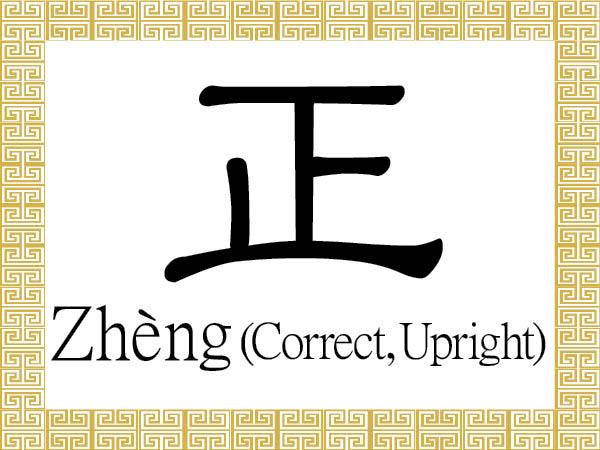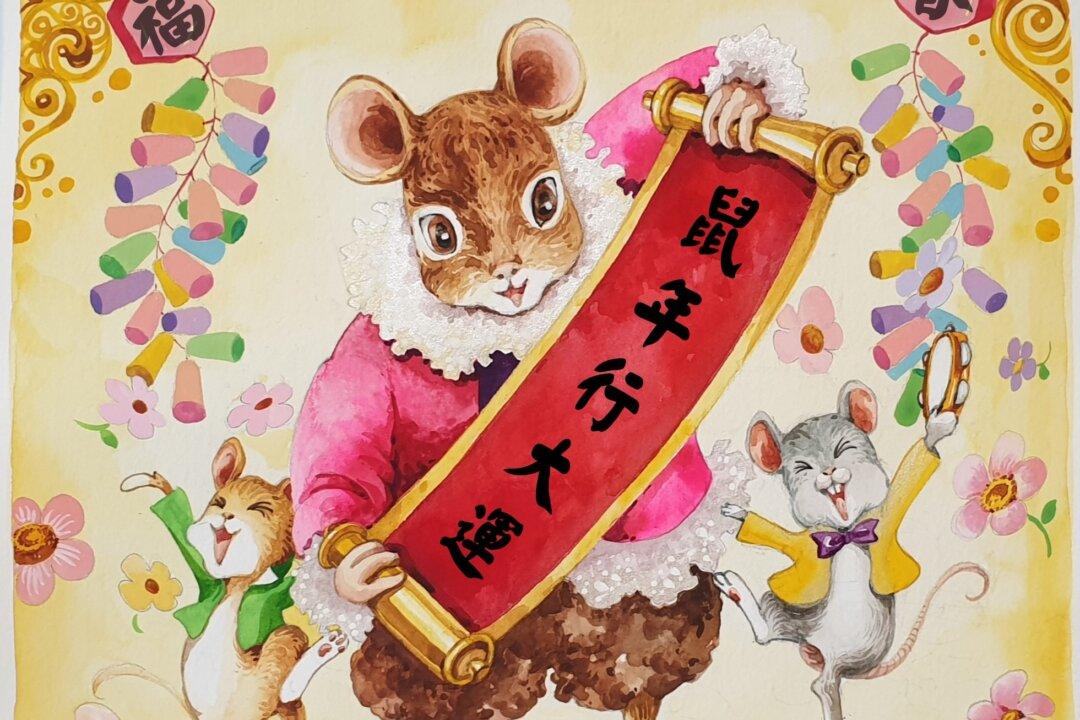The Chinese character 正 (zhèng) refers to the qualities of being correct, upright, proper, straight, or exact.
正 is formed by the two characters/radicals一 and 止, according to the first comprehensive Chinese etymological dictionary, “Shuo Wen Jie Zie” (說文解字), or “Explaining Simple and Analyzing Compound Characters.”
一 (yī), the number one in Chinese, originally referred to the concept of the simplest and earliest origin, from which the world was divided into heaven and earth, and then was transformed into all things in the universe.
“The Dao stands on one (道立於一, dào lì yú yī),” it is stated in “Shuo Wen Jie Zie.” In this context, 一 (yī) in the character 正 (zhèng) is interpreted as indicating the Dao or Heaven.
As 止 (zhǐ), according to “Shuo Wen Jie Zie,” refers to “foot,” the combination of 一 and 止 in the character 正 can be seen to convey the meaning of “walking in accordance with the Dao.”
Examples of terms that use 正 (zhèng) include 正常 (zhèng cháng), regular, normal, or ordinary; 正式 (zhèng shì), formal or official; 中正 (zhōng zhèng), fair and honest; 嚴正 (yán zhèng), stern and solemn; 正當 (zhèng dāng), honest, reasonable, fair, or sensible; and 正經 (zhèng jīng), decent, honourable, proper, or serious.
正念 (zhèng niàn) refers to “righteous thoughts,” where 念 (niàn) is the character for thought or idea.
The first month of the year is called 正月 (zhēng yuè), where 月 (yuè) stands for “month.”
Meanwhile, noon or midday is called 正午 (zhēng wǔ), referring to the time period from 11 a.m. to 1 p.m. 午 (wǔ) means “afternoon.”
正色敢言 (zhèng sè gǎn yán) describes someone who is straightforward and proper (正色, zhèng sè) as well as outspoken, i.e. one who dares (敢, gǎn) to speak (言, yán) in a straight manner.
The phrase 正言直諫 (zhèng yán zhí jiàn) refers to an adviser who uses just and upright speech (正言, zhèng yán) to give direct (直, zhí) advice or admonishment (諫, jiàn) to the emperor, superior, elders, or friends.
光明正大 (guāng míng zhèng dà), literally “bright (光明, guāng míng), upright (正, zhèng), and big (大, dà),” depicts a person of lofty, noble character who embraces frankness and openness and whose words and conduct are honest and upright.
The expression 奉公正己 (fèng gōng zhèng jǐ) states that one should behave in an upright manner and restrain or rectify (正, zhèng) oneself (己, jǐ) when handling public affairs (奉公, fèng gōng).
心正則筆正 (xīn zhèng zé bǐ zhèng) notes that when one’s heart (心, xīn) is righteous (正, zhèng), then (則, zé) one’s pen/brush (筆, bǐ), indicating one’s writing, will be righteous.
The phrase 一正壓百邪 (yī zhèng yā bǎi xié) expresses the conviction that one righteous thought (一正, yī zhèng) can suppress (壓, yā) one hundred (百, bǎi) evils (邪, xié).




